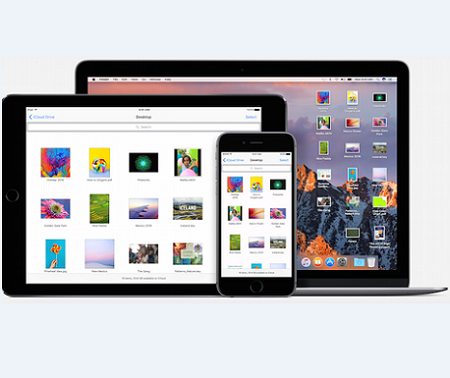Apple's Swift Playgrounds App Lays Foundation For Enterprise Future
The Swift programming language is becoming more popular and, in time, may find a home on corporate servers. The Swift Playgrounds iPad app will play a major role in that.

iOS 10, MacOS, WatchOS Updates: WWDC Up Close
iOS 10, MacOS, WatchOS Updates: WWDC Up Close (Click image for larger view and slideshow.)
Apple's Swift programming language is becoming more popular, but its future outside of Apple's ecosystem isn't yet assured.
At Apple's Worldwide Developer Conference, CEO Tim Cook celebrated Swift's progress since Apple released it as an open source project last year. More than 100,000 apps have integrated Swift code, and Swift has become the number one language project on GitHub, Cook said.
It's worth noting, however that not all programming languages exist as projects on GitHub. Older, more widely used languages like Java and JavaScript attract far more Google search queries than Swift. In Redmonk's January 2016 ranking of programming languages, Swift is 17th. In TIOBE's June 2016 ranking of programming languages, Swift is 14th.
To encourage more people to learn and use Swift, Apple announced an iPad app called Swift Playgrounds that the company plans to release this fall when iOS 10 debuts. Swift Playgrounds, written in Swift, takes the concept of Xcode Playgrounds -- a form of read-eval-print loop, or REPL -- and expands it by adding graphics and specific challenges designed by Apple to teach important language concepts.
"Because Swift is so easy to learn, it has the potential to bring many more people into coding," said Cook, who noted that over 100 WWDC attendees this year were under 18, with the youngest being age 9.
Apple made a preview release of Swift Playgrounds available to Apple Developer Program members through the iOS 10 developer preview. The app is expected to be available to Apple beta testers in conjunction with the iOS 10 public beta in July.
"We believe it's crucial that we provide the best tools, so you can create the best apps," said Cook. "That's why we created Swift. Swift is a powerful and intuitive programming language for iOS, macOS, watchOS, and tvOS."
Forrester analyst Michael Facemire, in a phone interview with InformationWeek, said it was noteworthy that Cook mentioned Swift only in the context of Apple's platforms. Despite efforts by IBM and PerfectlySoft to promote Swift as a full-stack language, he said, Swift is still seen mainly as a front-end language for Apple platform apps.
Swift has been welcomed by Apple developers because "the bar was set so low with Objective-C in terms of usability and developer enjoyment," said Facemire.
"I think there's a good chance Swift will get some traction in the enterprise for the same reason that JavaScript and Node.js have gained traction," said Gartner analyst Van Baker in a phone interview with InformationWeek. Developers, he explained, like the idea of using the same language in both front-end and backend code.
The big question is whether Google will encourage Android developers to develop Android apps in Swift and provide the necessary support.
"IBM keeps telling us people will start developing Android apps using Swift between now and the end of the year," said Baker. "I'm a little skeptical until I see it."
John Ponzo, IBM Fellow and CTO for Mobile, in a phone interview with InformationWeek, said Swift has a variety of benefits like type safety, which makes code less prone to errors. "We think there are a lot of advantages to a language like Swift," he said, noting that developers have run code in IBM's Swift Sandbox more than 1.5 million times since last December.
There aren't a lot of companies using Swift for backend services outside of pilot tests. One, said Ponzo, was City Furniture in Florida. But as Apple continues to work with partners like IBM and SAP, experiments can be expected to turn into internal or customer-facing deployments before long.
[See 10 Cool Tools to Build Apps Without Code.]
Google did not immediately respond to a request to say whether it intends to support Swift as a first-class language for developing Android apps.
Asked whether he believes Google will adopt Swift, Ponzo said only that IBM is encouraging the open source community to make Swift more broadly useful.
Sean Stephens, CEO of PerfectlySoft, insisted in a phone interview, "Swift is inevitable. There's no stopping it. You can understand it easily. It writes almost like English. There are all sorts of natural benefits."
Swift can save enterprises money, Stephens said, because Swift apps are compiled code. With an app written in a language like PHP, the server has to compile the code on the fly, which requires computing resources every time.
"Swift takes that away because everything is done up front," said Stephens. "That means less hardware, less memory, more safety, more scalability." For a company that has a PHP backend, Swift can potentially save tens or hundreds of thousands of dollars in hardware costs, he said.
While Stephens acknowledged that Google might push its open-source Go programming language for Android, he believes the company will eventually support a Swift compiler for Android.
"The key is going to be saving money," said Stephens. "There's a whole bunch of places where Swift will save enterprises a lot of cash."
There's also the issue of talent. Stephens said Apple's effort to encourage Swift education will pay dividends in the long run. Swift conferences, he said, are full of young, passionate developers, the sort of tech talent companies want. "I think that ultimately will drive enterprise usage more than anything."
[Editor's note: This article has been updated to remove a reference to an August 2015 GitHub post showing programming language popularity over time on the site. We noted the absence of Swift. In fact, Swift was not included because it was not made open source until four months later.]
About the Author
You May Also Like







